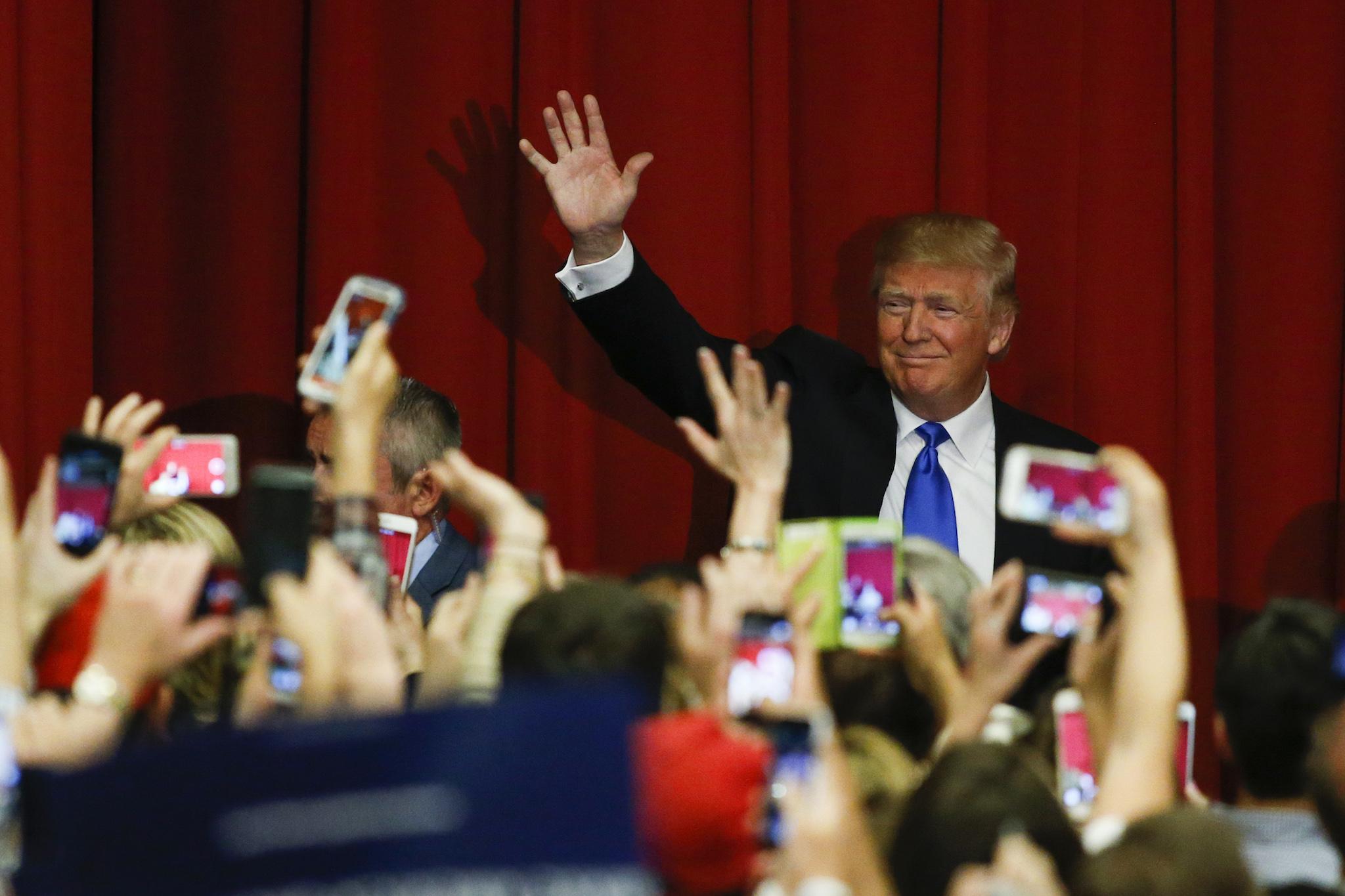Donald Trump signs bill that lets internet companies sell people's browsing history
White House press secretary Sean Spicer said that laws stopping the sale of people's most private internet history were 'red tape'

Your support helps us to tell the story
From reproductive rights to climate change to Big Tech, The Independent is on the ground when the story is developing. Whether it's investigating the financials of Elon Musk's pro-Trump PAC or producing our latest documentary, 'The A Word', which shines a light on the American women fighting for reproductive rights, we know how important it is to parse out the facts from the messaging.
At such a critical moment in US history, we need reporters on the ground. Your donation allows us to keep sending journalists to speak to both sides of the story.
The Independent is trusted by Americans across the entire political spectrum. And unlike many other quality news outlets, we choose not to lock Americans out of our reporting and analysis with paywalls. We believe quality journalism should be available to everyone, paid for by those who can afford it.
Your support makes all the difference.Donald Trump has signed a law allowing internet companies to sell people's browsing histories.
The new bill scraps a Federal Communications Commission (FCC) rule that let customers control what internet companies do with information on what websites they have visited.
Supporters of the change have argued that keeping browsing information private would stop innovation and that the rule was unnecessary red tape.
The FCC rule was introduced in October and was due to come into effect later this year. But Congress opted to wipe the bill from the books, as part of an effort to scrap consumer regulations that Congress members argue are costly or burdensome.
Internet companies like Google do not have to ask their users for permission before tracking what sites they visit, a discrepancy that Republicans and industry group have blasted as both unfair to companies and confusing to consumers.
White House press secretary Sean Spicer said last week that the president's support for the bill was part of a larger effort "to fight Washington red tape that stifles American innovation, job creation and economic growth".
"The president pledged to reverse this type of federal overreach in which bureaucrats in Washington take the interest of one group of companies over the interest of others," picking the winners and losers, he said.
Supporters of the privacy measure argued that the company that sells an internet connection can see even more about consumers, such as every website they visit and with whom they exchange emails, information that would be particularly useful for advertisers and marketers.
Undoing the regulation leaves people's online information in a murky area.
Experts say federal law still requires broadband providers to protect customer information but it does not spell out how or what companies must do, which is what the online privacy rule aimed to do.
The absence of clear privacy rules means companies that supply internet service, and who can monitor how consumers use it, can continue to mine that information for use in their own advertising businesses.
Consumer advocates also fear the companies will be a rich target for hackers.
Ajit Pai, the agency chairman appointed by Mr Trump, has said he wanted to roll back the broadband privacy rules.
Mr Pai and other Republicans want a different national agency, the Federal Trade Commission, to police privacy for both broadband companies like AT&T and internet companies like Google.
Broadband providers do not fall under the trade commission's jurisdiction and advocates say that agency historically has been weaker than the communications commission.
Meanwhile Mr Trump signed three other bills on Monday, including one that eliminates a rule banning the use of tactics like baiting and shooting bears from the air on the National Wildlife Refuges in Alaska.
Additional reporting by Associated Press
Join our commenting forum
Join thought-provoking conversations, follow other Independent readers and see their replies
Comments